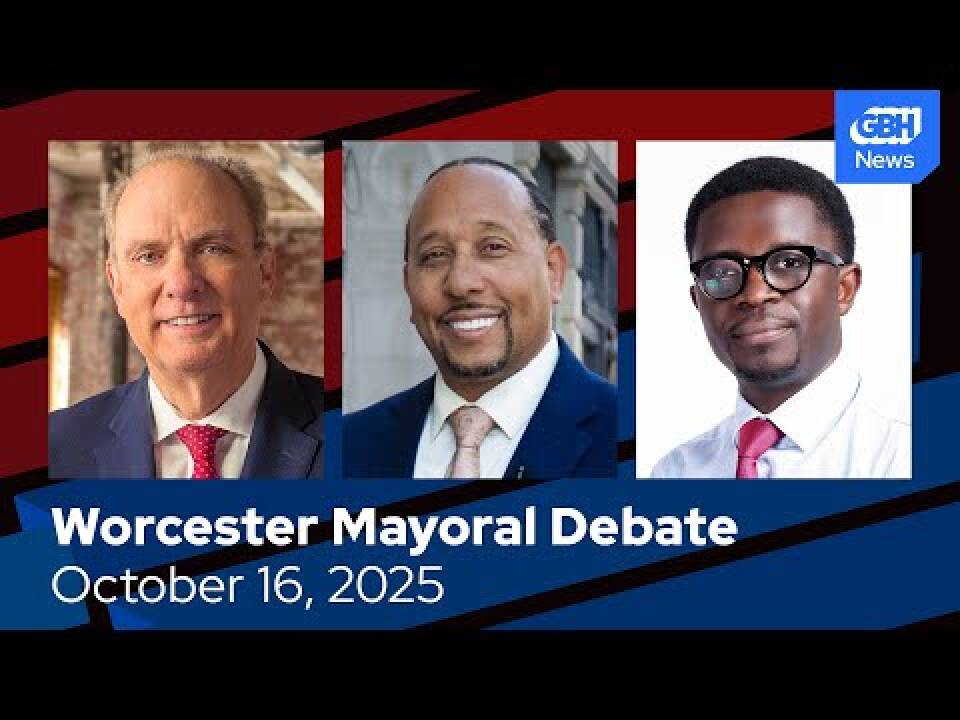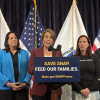Worcester’s mayor, city council and school committee members are all up for election Tuesday.
The stakes are high in New England’s second largest city: Over the next two years, Worcester leaders will likely navigate federal funding cuts, decide whether to create a police civilian review board and respond to record-high homelessness and housing prices, among other issues.
There’s also a contentious ballot question asking voters whether local universities should invest part of their endowments into a fund for city needs.
Here’s a breakdown of the main themes to watch Tuesday:
Petty is seeking a historic 8th term
Joseph Petty has been Worcester’s mayor and city council chairman for nearly 14 years. He views himself as progressive, but acknowledges that he often votes with the council’s more conservative members. The mayor says his moderation on issues helps him negotiate with people and build consensus. Like other incumbents up for election, he’s also argued that Worcester has boomed under his leadership. After losing residents throughout much of the last century, the postindustrial city’s population has grown about 14% since 2010.
If reelected, Petty has said rebuilding old public schools around the city will continue to be one of his priorities. He’s also proposed giving landlords a tax break if they keep rents low for residents. And, in response to a recent report recommending the city create a police civilian oversight board, Petty has questioned whether the panel is necessary.
The mayoral race includes a familiar matchup
Per Worcester’s city charter, mayoral candidates are also on the ballot for at-large city councilor. So someone can lose the mayoral race but still win a seat on council. That’s what happened to Khrystian King in 2023. He finished nearly 5,000 votes behind Petty in the mayoral race but still secured the vice chair role on City Council.
King has been a councilor since 2016 and consistently votes with the body’s more progressive wing. He supports creating a police civilian oversight board and says, if elected, he’d consider rent stabilization and first-time homebuyer programs to ensure Worcester remains affordable for residents. Like Petty, King also says he wants to upgrade school infrastructure.
The third mayoral candidate is local business owner Owura Sarkodieh, who’s never served in city government. Sarkodieh’s political views align with King’s on most fronts. Both candidates say that after over a decade with the same mayor, Worcester needs new leadership that’s accountable and will be more effective tackling the city’s rising cost of living.
Worcester City Council is in store for a shakeup
Like the mayor, city councilors serve two-year terms and are responsible for approving the municipal budget, setting policy priorities and overseeing the city manager.
Over the last two years, divisions on the Worcester City Council have been stark. Councilors have had tense arguments over police accountability, homelessness, the war in Gaza and how they should treat each other. The acrimony has spilled out into the community, leading to threats of political violence against councilors.
The election on Tuesday is guaranteed to change the makeup of the body. Every seat is open, and there are two candidates for each of the five district council seats, and 12 candidates vying for the six available at-large seats.
Current At-Large Councilor Thu Nguyen is not seeking another term. Nguyen — the first openly nonbinary person elected to government in Massachusetts — stopped attending weekly council meetings earlier this year after accusing fellow councilors of making transphobic comments.
District 1 Councilor Jenny Pacillo also isn’t running for re-election because she says she wants to spend more time with her family. District 3 Councilor George Russell isn’t on the ballot either. Russell has served in the role for 14 years. In announcing his decision to step aside, he said it was time for someone new to “bring their vision” to the position.
The council race features a mix of candidates with different political leanings. Two rematches from 2023 will be on the ballot: incumbent Candy Mero-Carlson and Rob Bilotta for the District 2 seat, and incumbent Etel Haxhiaj against Jose Rivera in District 5.
Any changes to school committee?
There may be less of a shakeup to the Worcester School Committee. District members Molly McCullough, Vanessa Alvarez, Alex Guardiola and Jermaine Johnson are running unopposed.
The other two district seats are contested, however. District E incumbent Kathleen Roy will face Nelly Medina in a rematch of the 2023 race when Medina lost by just 103 votes. In District C, incumbent Diana Biancherria will seek her eighth term on the committee against Feanna S. Jattan-Singh.
The at-large candidates include incumbents Sue Mailman and Maureen Binienda, and challenger Adwoa Sakyi-Lamptey. The two candidates with the highest vote totals will win the seats.
Will more voters show up to the polls?
Over the last 15 years, voter turnout in Worcester’s local elections like this one has been anemic, never topping more than 22%. The reasons vary. Some residents say they’re disillusioned with politics and don’t believe voting makes a difference. Other people working multiple jobs don’t have time to catch up on candidates and fill out a ballot.
The consequences of low turnout can be profound. Political science experts say when only a small percentage of residents fill out a ballot, they have disproportionate influence over who wins. Elected officials therefore may not reflect the values and opinions of the many people who don’t vote.








